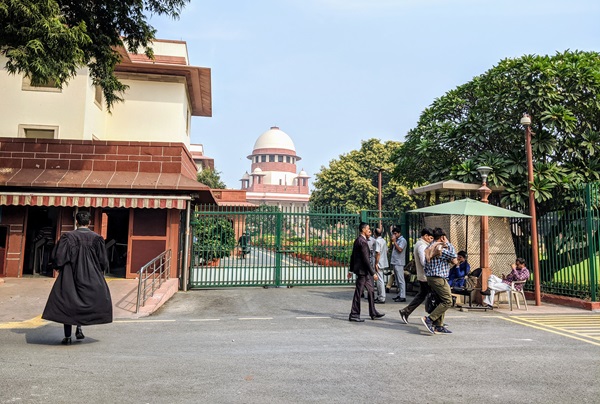.png)

Shruti, a legal journalist, covers business and commercial law. She tracks key legal developments.
May 10, 2025 at 8:35 AM IST
Over seven years after Bhushan Power and Steel Ltd was first pushed into insolvency court as part of the Reserve Bank of India’s original ‘dirty dozen’, its long and chequered revival story has ended in liquidation, for now. The Supreme Court has pulled the plug on the sale of BPSL to JSW Steel, declaring the deal so riddled with legal and procedural lapses that it must be undone. The verdict calls out not just JSW, but also the lenders and resolution professional, for pushing through a process the court says was riddled with fraud.
The situation is messy. A marquee company like JSW Steel now finds its reputation under a cloud. Lenders could have to return about ₹197 billion they had already pocketed. And an operational steel unit, once celebrated as a rare Insolvency and Bankruptcy Code success story, could be headed for the scrap heap.
But, in the face of glaring misdoings and acts the court held to be illegal, it is not possible to imagine a legal institution, a country’s top court no less, allowing the acquisition to stand regardless. It is the court’s duty to hold the letter of the law, after all.
Legal Clarity
The Court’s logic is simple: a process riddled with irregularities cannot stand, no matter the outcome. In an indictment for JSW, the Supreme Court said “there was a dishonest and fraudulent attempt” in not following through on the commitment made for an upfront payment, “thereby enriching itself unjustly”.
JSW complied with the terms of the resolution plan at a later stage “in collusion with the Committee of Creditors and the Resolution Professional”. Mandatory timelines were ignored. The plan was modified and approved without due process. At every stage—CoC, NCLT, NCLAT—safeguards embedded in the IBC were bypassed. The verdict concluded that the very foundations of the resolution plan had been compromised.
Many argue that the liquidation makes little commercial sense now, given that BPSL became a subsidiary of JSW years ago and the acquisition was completed four years back. But the bigger question is: was the Court expected to turn a blind eye to impropriety instead?
There is no gainsaying that the decision was not without good reason. The top court was presented with the question of fait accompli, when something has already happened and the affected parties are left without an option but to accept it. “A plea of fait accompli cannot be permitted to be raised… to cover up illegal acts,” the Court said. A legal institution could not possibly validate wrongdoing simply because time had passed and the transaction was complete.
If courts begin to allow post-facto rationalisation of tainted deals, especially those involving powerful corporations and financial institutions, then the rule of law itself begins to erode. The more than 100-pages-long verdict has a clear message: no matter how much money a corporate case has riding on it, it will not shy away from reversal if the process is not good in law.
IBC Rethink
If anything, this judgment raises the bar for compliance under a still-maturing insolvency law. It holds that corporates and consortiums acquiring stressed companies cannot cut corners or treat the process casually and expect the courts to look the other way.
What this judgment also lays bare is just how shaky the foundation of India’s insolvency frameworks still are. That a resolution plan this flawed made it past lenders, tribunals, and watchdogs alike says a lot about how lightly these gatekeepers treat their roles. The institutions meant to safeguard the sanctity of the IBC process were not just ineffective; they were complicit.
This should serve as a wake-up call for policymakers. The IBC cannot succeed on the strength of its legal text alone. It needs robust institutional checks, stronger enforcement, and above all, credible actors.
It is hard to bat for an acquisition process so inherently marred with irregularities. The case will inevitably lead to legal reviews, with JSW and lenders likely to file review petitions. To be sure, review pleas rarely succeed, but it's not impossible. Yet, this case should not deter investors from bidding for distressed businesses. Instead, it should be seen as a necessary recalibration. India’s bankruptcy code cannot mature without punishing bad-faith actors, even retroactively.
A functional steel plant’s liquidation is undeniably tragic. But when institutions tolerate fraud, the greater casualty is the rule of law.
Also read:
Why The JSW-BPSL Saga Risks The Credibility Of India’s Bankruptcy Code
IBC Cannot Survive If Finality Is This Fragile




